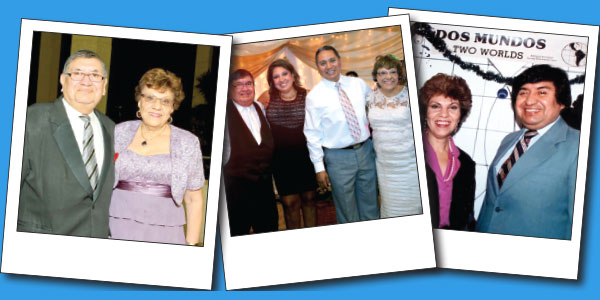
Es probable que usted ha sido invitado por alguien – quizá un amigo o pariente – para participar en una oportunidad de negocio multinivel. Algo tan conocido como Herbalife o Rodan & Fields. Pero independientemente de si era una marca popular o no, le ofreció la promesa de hacer mucho dinero – incluso llegar a ser rico.
Pero esa no es la realidad de las oportunidades de negocios multinivel. La mayoría de ellos terminan con familias despedazadas por las graves cantidades de deuda que han reunido al unirse a tales “oportunidades de negocio”.
El detalle más alarmante sobre las oportunidades de negocio multinivel es cómo los latinos son desproporcionadamente enganchados. De hecho, en el episodio del programa de la cadena de televisión HBO “Last Week Tonight”, el anfitrión John Oliver expuso a Herbalife por tomar ventaja de los latinos. Oliver invitó al actor mexicano Jaime Camil a ofrecer un segmento en español, instando a los latinos a no caer en la trampa del negocio multinivel.
En el 2015, las empresas multinivel de marketing hicieron $ 30 mil millones en ventas en los Estados Unidos, según Oliver. Pero los bolsillos de los distribuidores estaban vacíos, incluso perdieron decenas de miles de dólares.
Ex distribuidores que han compartido sus testimonios han dicho que la única manera de ganar dinero proviene de las personas que reclutaron en la empresa para ganar dinero con sus ventas. Mientras tanto, todos los productos que compraron mientras esperaban venderlos se acumulaban en sus garajes y expiraron. Según la FTC, en un legítimo negocio multinivel, “uno gana dinero vendiendo el producto, no reclutando a otros para unirse y comprar productos”.
Desafortunadamente, el gobierno federal ha ignorado las prácticas engañosas de los negocios multinivel por años. Hay indicios, sin embargo, de que la actitud del gobierno podría estar cambiando. Este verano, la Comisión Federal de Comercio (FTC) anunció que Herbalife había acordado pagar $ 200 millones después de una larga disputa legal. Sin embargo, eso es sólo una pequeña victoria para aquellos que han perdido miles de dólares que no esperaban perder, todo mientras se les prometió que ganarían mucho dinero.
Para reportar un esquema pirámide ilegal con la FTC, visite https://www.consumidor.ftc.gov/
Multilevel marketing businesses are taking advantage of Latinos
Commentary by Melissa Arroyo
Chances are, you’ve been invited by someone – maybe even a friend or relative – to participate in a multilevel business opportunity. It might’ve been something that’s well-known, such as Herbalife or Rodan & Fields. Regardless of whether it was a popular brand name or not, it offered you the promise of making serious money – even becoming rich.
But that’s not the reality of multilevel business opportunities. Most of them end with families broken apart by the serious amounts of debt they’ve gathered while joining such “business opportunities.”
The most alarming detail about multilevel business opportunities is how Latinos are disproportionately targeted. They’re targeted so much, in fact, that on the Nov. 6 episode of the HBO TV program “Last Week Tonight,” host John Oliver exposed Herbalife for taking advantage of Latinos. Oliver invited Mexican actor Jaime Camil to provide a segment in Spanish, urging Latinos not to fall for the multilevel marketing trap.
In 2015, multilevel marketing businesses made $30 billion in retail sales in the United States, according to Oliver. That makes it sound like the distributors gained from those sales. Actually, they lost tens of thousands of dollars.
Former distributors who’ve shared their testimonies have said the only way they made money came from the people they recruited into the company to make money from their sales. Meanwhile, all the products they bought while hoping to sell them accumulated in their garages and expired. According to the FTC, in a legitimate multilevel marketing program, “one makes money by selling the product, not by recruiting others to join and buy product.”
Unfortunately, the federal government turned a blind eye on multilevel marketing businesses’ deceptive practices for years. There are signs, however, that the government’s attitude might be changing. This summer, the Federal Trade Commission (FTC) announced that Herbalife had agreed to pay $200 million after a lengthy legal dispute. Still, that’s only a small victory for those who’ve lost thousands of dollars that they weren’t expecting to lose – all while being promised they’d make serious money.
To report an illegal pyramid scheme with the FTC, visit https://www.consumer.ftc.gov/.










